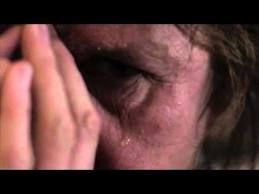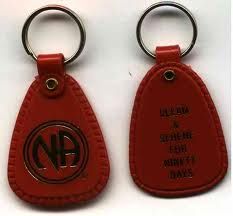Relationships
A 12-Step Rest Stop for Heroin Addicts
Love isn't ALL you need, but it sure can help.
Posted November 1, 2012
Recently I travelled to England to talk to people with expertise in addiction. I had gotten a couple of emails from a fellow named Peter, living somewhere near Liverpool. I had no idea what he looked like, or whether he was, you know, okay to talk with. Heroin addicts can be pretty rough trade, and he'd been one for a lot of years. Now he was working for the treatment community, he sounded sane, even friendly, so I thought I'd give him a try.
After a three-hour train ride from London, I was met by a large, smiling man, a guy who looked like he could pick me up with one hand. He ushered me into a very messy van and off we went. Later I found that Peter lived in a small house that seemed to be tilting on its foundations, together with a very large dog and a quiet, friendly woman. But we didn’t go to his home first. On the long drive through rush-hour traffic I told him I’d never been to a 12-step meeting. Hint hint. Would you like to got to one tonight, he asked? Indeed I would. He said we’d be a few minutes late but it didn’t matter. We were on our way to a meeting of one of about 30 NA (Narcotics Anonymous) groups in the region.

We walked in the door of a modern, nondescript building, and approached a group of about 30-40 people sitting in chairs in a large ragged circle. Many looked up at Peter as we approached, nodding or smiling. He seemed the granddaddy of the group. He’d been clean and sober for over ten years, a state many of the others could barely imagine. I felt their love and their respect for him. And they looked over at me, some with flickering smiles: who is thiat diminutive, academic looking fellow, never before seen in these parts? What’s his story?
"I used to be an addict too. Honest!" I felt like saying. But I kept my mouth shut.
So we sat down at the outskirts of the group and just listened. Through thick Liverpudlian accents, their stories found their way into my brain and my heart. These people, mostly men, looked like they’d been through the ringer. Their faces were hard, their endurance carved in the creases around their eyes and the grim holding pattern of mouth and jaw. But there was a softness here too. They listened to each other’s miseries with real caring, with a kind of empathy that doesn’t run out, because if there’d been any limit to it, it would have run out long ago. Later, I asked Peter what was the approximate range of clean time for the people there that night. He said: mostly under a year or so, some a few months, some a few weeks, some just a few days. I could recognize the last group from their constant sniffling. Everyone there was a heroin addict.
With all my negative presentiments about the 12-step program, I found myself in emotional vertigo. This was not what I expected. There was something intrinsically good here. And I thought I knew what it was: that old thing variously called friendship, warmth, brotherhood/sisterhood, support, caring. These people cared for each other, and given the degree of their helplessness, what more could you ask?

Their stories were sad, of course, full of bitter irony and gut-wrenching failure, self-rebuke, hopelessness tinged with a bit of hope. But there was usually a smile there too. Maybe not until the last sentence, at which point the person might look up, his face finally relaxing into a crooked grin, as if to say, I know you know that I probably won’t make it, at least not for good, at least not this time around, but you know, I might...
On the way back to Peter’s crooked house, I asked him how many of the people sitting there tonight would stay clean…for a good long time, maybe barring the occasional relapse. He thought for a moment and then said: maybe 30 percent.
When we got there, he cooked us a curry. The woman offered me vodka, but Peter wouldn't touch it. I started to like him a lot.
Once, a reader of my blog accused me of not being a “true addict” -- a term that 12-steppers save for themselves, and from which they exclude (somewhat disparagingly) people like me, who were only actively addicted for 8-9 years (!) I asked Peter what the expression actually meant. From the perspective of NA or AA, being a true addict means that you could not, simply could not, after trying everything under the sun and the moon, time after time, year after year, could not stop. So these groups were really the only thing left. And sometimes they worked. But even if they didn’t, they probably made life bearable. Peter felt that the “true addict” polemic did more harm than good, magnifying differences rather than commonalities, fanning the political flames that so often shoot up between treatment programs. But at least now I knew what it meant. And I was glad I didn’t fit the bill.
I asked Peter a lot of questions that night, and I’ll just mention one more. I asked: why the dogma? Why do some 12-steppers insist that this is the only way when we all know it’s not the only way? He thought about that one for a while. Then he said something like this: When you’ve been trying that long and failing that long and then, finally, something works, you don’t look around and compute the statistics. You tell everyone who will listen: This is what works. This is the only thing that works. The unspoken part remains “for me.”


